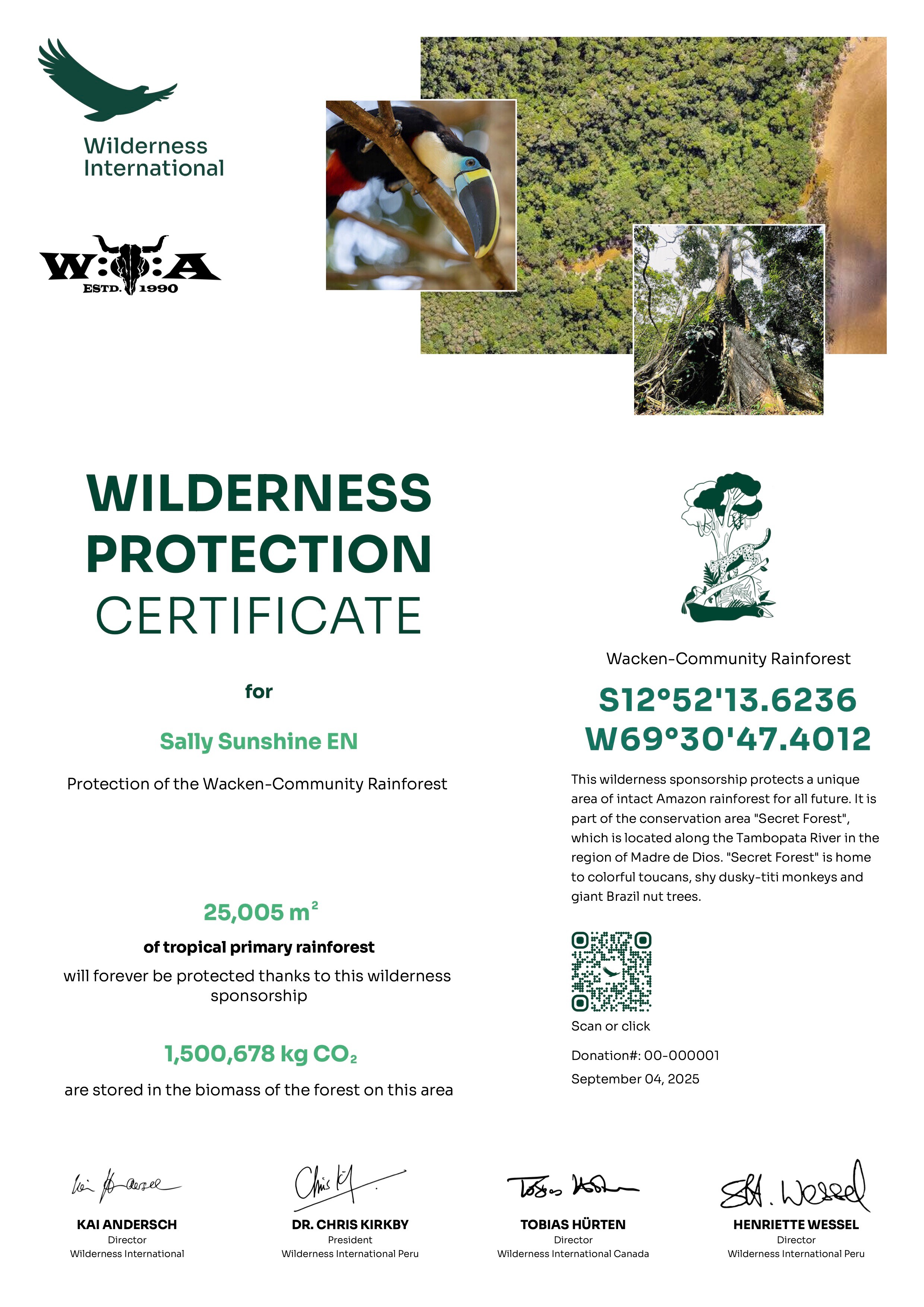
Can we protect 4 million square meters of rainforest together?
Metalheads, we have a big goal!
Let’s do something together for nature and protect rainforest in Peru. In the coming years, we aim to protect an area the size of the entire festival grounds and thus protect an ecosystem as habitat for countless animal species and plants.
The organizers of the Wacken Open Air have already protected the first 1000 m2 of the Wacken Community Rainforest - and together we now ask you to support us in our goal.
Keep Wacken Wild! Protect the most biodiverse place in the world together with the Wacken community!
Every contribution counts
We have a big vision: to protect the last real wilderness areas of our world forever! 1€ donation protects 1 m2 old-growth forest - forever. Donors receive a certificate with the geo-coordinates and an aerial photo of the protected forest area, as well as a tax-deductible donation receipt.
Your donation at a glance:
Concrete use: 1 € donation protects 1 m² rainforest
Good for the climate: 60 kg of CO2 remain permanently bound in living biomass
Transparent: you will receive a certificate with the geocoordinates and an aerial photo of the protected forest area
Lasting impact: your one-time donation guarantees the permanent protection of the area
Tax-deductible donation with donation receipt
Your wilderness certificate
Immediately after your donation, you will receive a personalized certificate about the piece of wilderness you have protected. It also makes a great gift!

These metalheads have already donated:
Thank you to these great supporters for preserving unique habitats and a huge diversity of species. These people are making a contribution to a healthy climate on our planet.
$m2
$m2
$m2
$m2
About Wilderness International
The foundation, which is based in Peru, Canada and Germany, purchases legally secure wilderness areas and protects them for the future. The purchases are refinanced through donations, which ensure the long-term protection of the areas, supports environmental education projects, and research into CO2 storage and biodiversity.








